Cascio Tracks
Partnership Between Sony Music and Michael Jackson’s Estate Renewed Amidst Ongoing Fraud Lawsuit
Published
7 years agoon
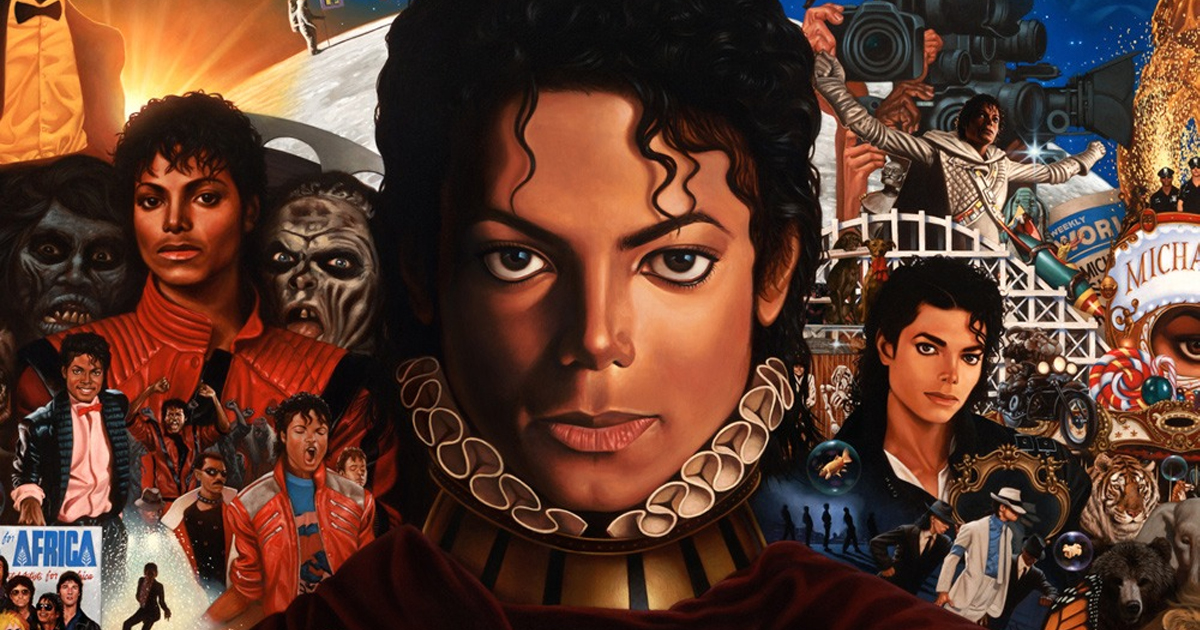
Sony Music and the Estate of Michael Jackson today announced they will remain business partners well into the future after inking a renewal of their previous deal together, again tying Jackson’s music to the record company he once campaigned against.
“Effective January 1, 2018, Sony Music will extend the term of their administration of Michael’s record catalog in a long term recording agreement,” their joint press release states. “Sony will also have the opportunity to partner on additional projects that the Estate may produce during the term of the agreement.”
The December 14, 2017 press release goes on to detail a number of projects Sony and the Estate completed over the course of their previous seven-year deal – signed in March 2010 and reportedly worth a record US$250 million – including two Spike Lee documentaries, 2014’s Xscape album, and ‘virtual Michael Jackson’ performance (which was actually just a visual projection of a pre-recorded MJ impersonator) at the Billboard Music Awards.
However, one glaring omission from the self-glorifying press release was the first posthumous collection of unreleased songs by the King of Pop – the Michael album – which, released in the U.S. seven years ago today, continues to be haunted by ongoing allegations of fraud.
What should have been a triumphant smash hit became a catastrophe in late 2010 when Jackson’s family, collaborators and fans said three of the songs on the album sounded like fakes. After years of dismissing the claims, lawyers for Sony and the Estate have made the startling admission that the songs might actually be forgeries after all – sung by an impostor.
For several years, a David and Goliath battle has been unfolding in the Los Angeles Superior Court where a single, extremely determined Michael Jackson fan is taking on some of the entertainment industry’s most powerful players. Reputations are on the line in what has the potential to be one of the most infamous lawsuits the music business has ever seen. Yet most people have no idea the case is even happening – the media has almost completely ignored it.
California-based consumer Vera Serova contends in her class action lawsuit that millions of consumers have been defrauded since the Jackson Estate and Sony Music Entertainment released the Michael album, including three songs – “Breaking News,” “Keep Your Head Up” and “Monster” – with fake vocals sung by a Jackson soundalike.
While today the media has all but forgotten about the issue, it generated a lot of coverage at the time. In December 2010, co-defendant in Serova’s lawsuit, Eddie Cascio, appeared on The Oprah Winfrey Show to discuss the authenticity of the songs, which Cascio and his collaborative partner James Porte, also a co-defendant, supplied to Sony earlier that year. When asked to respond to accusations that the voice on his songs was not Jackson’s, Cascio simply told Winfrey: “I can tell you that it is Michael’s voice.” Unchallenged by the talk show host for any kind of evidence beyond his word, Cascio added that Jackson had recorded the three songs – along with nine others that remain unreleased – in his New Jersey basement in 2007. Serova’s lawsuit contends Jackson did no such thing.
It was Jackson’s family who first raised the alarm about the allegedly forged vocals. They, along with thousands of fans, petitioned Sony not to release the Cascio tracks, but were dismissed by the label and media as troublemakers and conspiracy theorists. Sony released a brief statement at the time saying the company had ‘complete confidence’ that the vocals were legitimate.
Attorney for the Jackson Estate, Howard Weitzman, also responded to the backlash by issuing a statement. It listed six of Jackson’s former engineers who had reportedly attended listening sessions, been played the isolated vocal tracks a capella (without the music), and confirmed that the voice was ‘definitely’ Jackson’s. Several people who attended the listening sessions, however, refuted Weitzman’s statement, which also claimed that two forensic musicologists had authenticated the vocals as Jackson’s.
Even the Estate’s co-executors, John Branca and John McClain, could not agree on the matter, with McClain joining the Jackson family in their stance against the songs. “My friend John McClain (co-executor) and I have insisted for many weeks to have certain tracks removed from Michael’s new album,” said Jackson’s brother Jackie at the time. “Unfortunately, our concerns were not taken seriously.” Despite all of this, the media seemed satisfied with Sony and Weitzman’s statements, and the controversy has scarcely been reported on since.
But thanks to Serova’s ongoing class action consumer fraud lawsuit, Sony and the Jackson Estate are being forced to face the music. In a public courtroom late last year, on December 7, 2016, lawyers for the record company and estate finally conceded that the songs might actually be forgeries. Zia Modabber said Sony and the Estate had taken the songs original producers – Porte and Cascio – at their word. Shockingly, he insisted that even if the vocals were not Jackson’s, Sony and the Estate had done nothing wrong by saying they were. This was noncommercial speech protected by the First Amendment, Modabber claimed.
The argument didn’t sit well with presiding Judge Ann I. Jones of the Los Angeles Superior Court. “What is problematic is that you are ripping people off under your admitted facts,” she countered. Modabber insisted the Constitution allowed Sony and the Estate to lie to consumers: “If we ripped people off and it’s noncommercial speech, they lose under the statutes; that is just the law.”
To be culpable, Modabber told the court, the seller of the product should be ‘in a position to know what it is they are selling’. “In this case, that is not what has gone on,” he argued, adding that co-defendants Porte and Cascio “failed to disclose to Sony or the Estate that Michael Jackson did not provide the lead vocals.”
Judge Jones summarized Modabber’s argument as follows: “I think what he is saying here is. ‘We were as duped as the Plaintiffs… We didn’t know you guys were recording stuff in a basement that wasn’t recorded by Michael. You told us it was Michael. We believed it was Michael. And if there is a bad guy here, who was engaging in false commercial speech, it’s not us.’”
Sony and the Estate’s position in court may seem staggering, but it is not foolish. Over the years, as the defendants tried to sweep the controversy under the rug, evidence against the Cascio tracks has continued to mount.
Neither Porte nor Cascio have ever provided convincing evidence of Jackson’s contribution to the songs – not even a mention of them in the singer’s countless handwritten notes. Jackson was well known for scribbling song ideas and lyrics on scraps of paper. When he died, a handwritten list of approximately 30 songs the singer was working on was found taped to his bedroom wall. The list did not feature a single Cascio track.
Longtime Jackson collaborators pointed out that the vocals on the Cascio tracks lacked signature MJ recording habits, including finger snaps and foot stomps. Asked to provide alternate vocal takes, Porte and Cascio claimed they had deleted them all. Also questioned were the vibrato and dialect of the singer – neither of which matched Jackson’s. Serova’s lawsuit cites these inconsistencies, which are supported by a 41-page report by forensic audiologist Dr. George Papcun, PhD, who concluded the songs were sung not by Jackson.
To this day, fans around the globe remain equally unconvinced. Just last month, to mark the seventh anniversary of the November 8, 2010 “Breaking News” premiere, dozens of fans emailed Howard Weitzman, John Branca, and Sony Music’s CEO Rob Stringer urging them to remove the Cascio tracks from Jackson’s discography. “The continued presence of the three ‘Cascio tracks’ on MJ’s official catalogue is an ongoing sprinkling of salt in a wound that just won’t heal,” wrote one fan. “Please, it’s finally time to set the record straight – push aside the corporate coldness and let’s do right by Michael like he deserves,” pleaded another.
In today’s press release announcing the renewal of their recording contract, Branca (and McClain) heaped praise on Stringer and Sony, saying that the Estate ‘couldn’t ask for more creative and innovative partners’ than them, adding: “Michael continues to inspire generations of artists who have come after him and attract new fans who understand that his music and message are more important than ever. We look forward to continuing to preserve and develop his remarkable musical legacy with Sony.”
Meanwhile, emails from fans regarding their continued sale of the Cascio tracks – despite their concession that they may be forgeries – were met with silence, and the Michael album – including “Breaking News,” “Keep Your Head Up” and “Monster” – remains available for purchase via online retailers and in record stores around the world.
Unlike Sony and the Estate, however, Cascio and Porte seem unwilling to make any concessions regarding the vocals on their songs, standing by their claims that Jackson is the singer.
In a bizarre development earlier this year, Eddie’s brother, Frank Cascio, brazenly attempted to cash in on what auction house Gotta Have Rock & Roll listed as ‘Michael Jackson’s personally owned copy of his final album’ – a homemade CD scribed with the word ‘Bible’ (not in Jackson’s handwriting) and featuring the songs tangled in his brother’s pending fraud lawsuit – for a staggering opening bid of $50,000.
The auction house described the CD as “Michael Jackson’s personally owned copy of his final album consisting of 12 finished tracks, all with finished vocals,” adding that the music on the disc was ‘master quality’ while telling the media it anticipated bids of anywhere up to US$1 million.
Interestingly, the titles and track lengths detailed in the CD’s lot description matched exactly with versions of the songs co-produced and mixed by Jackson’s former engineer, Stuart Brawley, almost a year after Jackson’s death. Eddie Cascio and James Porte brought Brawley in to help prepare the 12 songs for their ultimate sale to Sony and the Jackson Estate. This caused an uproar in the Jackson fan community, with many quick to point out that if the music burnt on the CD was completed posthumously, it would not be possible for Jackson to have ever personally owned it.
The lot was withdrawn from auction days later – after it made headlines on several major media outlets including Rolling Stone and Billboard. In an email to me, a rep for the auction house explained:
“We’ve been asked to take it down from the auction by the consignor who has had second thoughts on selling it publicly and would prefer to sell it privately. I think Frank was very surprised by the massive amount of media attention that it garnered and he felt that a private sale was a more respectful way to go since it was [Jackson’s] last album, and we are respecting Frank’s wishes.”
The rep added that Cascio’s decision to remove the CD from auction was motivated by his desire to ‘keep the integrity of Michael Jackson’s legacy’, despite moving forward with the sale of dozens of other items including what Cascio claims were Jackson’s personally worn underwear, and intimate gifts given to the superstar by his children.
Beyond the notion of ‘respect’ and ‘integrity’, the sale of the album would have been legally improper considering the ongoing fraud lawsuit its contents are subject to. The Cascio brothers have a duty to preserve the CD and, if sold, could be considered destruction of evidence.
Faking Michael podcast series will shed new light on controversial songs and album.
Also in-the-works is Faking Michael – an investigative true-crime podcast series chronicling my quest for the truth about the Cascio tracks and the Michael album. The series will take you behind the scenes to find out once and for all where the controversial songs truly came from, and how they ended up on an official Michael Jackson album.
The podcast series will detail the findings of my investigation, drawing on hundreds of hours of exclusive interviews with many of those closest to the controversy, thousands of pages of correspondence and official records, and never-before-heard evidence that has lead to shocking breakthrough discoveries.
A trailer for Faking Michael is live on Apple Podcasts, Spotify and YouTube.
Damien Shields is the author of the book Michael Jackson: Songs & Stories From The Vault examining the King of Pop’s creative process, and the producer of the podcast The Genesis of Thriller which takes you inside the recording studio as Jackson and his team create the biggest selling album in music history.

You may like
-
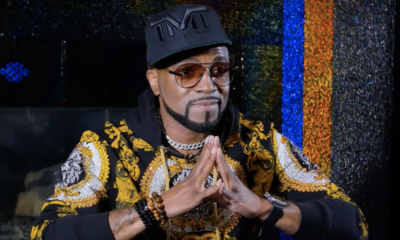

Producer Teddy Riley Comes Clean Regarding Fake Songs From Posthumous Michael Jackson Album
-


Huge Win for Michael Jackson Fan as Supreme Court Rejects Sony’s Free Speech Defense in “Fake” Songs Lawsuit
-


Alleged Forgeries Removed From Michael Jackson’s Online Catalog After 12 Years of Protests and a Fraud Lawsuit
-


Supreme Court Judge Grills Sony Lawyer Over ‘Contradictory’ Arguments in Alleged Michael Jackson Fraud
-


Court Date Set in Supreme Court Battle Over Legal Right to Sell Alleged Michael Jackson Forgeries
-
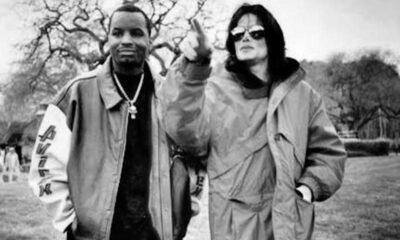

Michael Jackson Meets America in Invincible Album Outtake ‘A Place With No Name’
10 Comments
Leave a Reply
Cancel reply
Leave a Reply
Cascio Tracks
Producer Teddy Riley Comes Clean Regarding Fake Songs From Posthumous Michael Jackson Album
Published
2 years agoon
September 23, 2022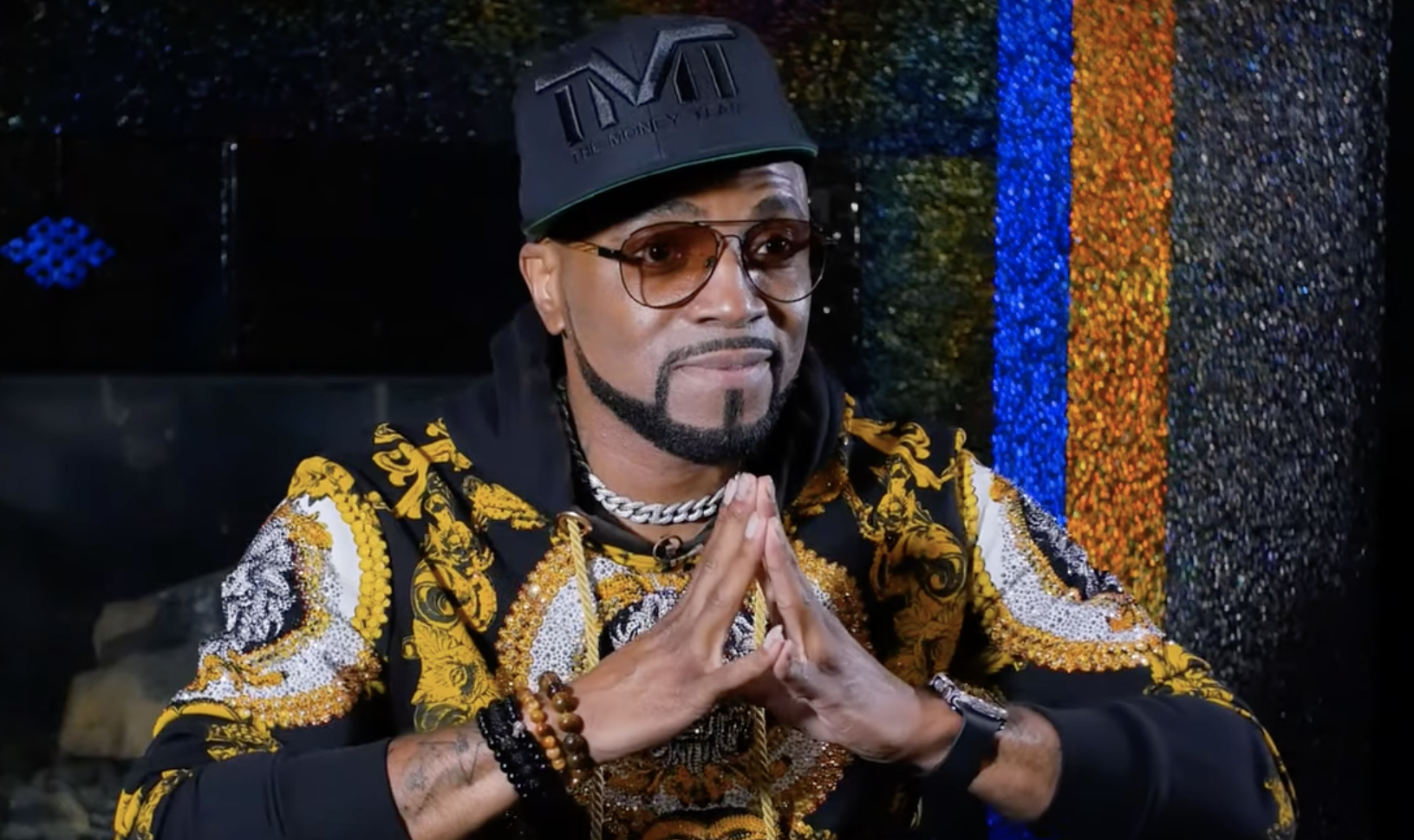
Legendary producer Teddy Riley has spoken out against the controversial Michael Jackson album he worked on after the pop star’s death, claiming that he believes some of the tracks he was asked to remix for the project are fakes, but that he was “pushed” to say they were authentic.
“I just hope that the truth comes to light because it was never proven to me that it was Michael’s voice,” said Riley in a bombshell video published today by hard-hitting pop culture interviewer DJ Vlad for Vlad TV.
The songs in question, known as the Cascio tracks, were provided to Sony Music and the Estate of Michael Jackson by the pop star’s longtime friend Eddie Cascio and his collaborative partner James Porte.
Cascio and Porte claim that Jackson recorded 12 songs in Cascio’s basement shortly before his death. Three of those songs – “Keep Your Head Up,” “Breaking News” and “Monster” – were included on the Michael album in December 2010.
Riley, who worked extensively with Jackson throughout his life, remixed “Breaking News” and “Monster” for the posthumous project.
Initially, Jackson’s family gave Riley their blessing to work on the project. Michael’s nephew, Taryll Jackson, even joined Riley in the studio.
But upon hearing the Cascio tracks, Taryll believed the vocals were sung by an impostor.
When the rest of the Jackson family heard them, they felt the same way, taking to social media to denounce the Cascio tracks as fakes.
Amidst all the controversy, Riley and Cascio appeared on Oprah Winfrey’s talkshow, where they both insisted the vocals were the real deal.
But when interviewer DJ Vlad asked Riley about it, the producer made the explosive claim that he was forced to say the vocals were authentic:
“I was influenced and pushed to say the things that were said.”
The producer went on to explain that he initially demanded proof regarding the authenticity of the vocals, but that no such proof was ever presented.
“They would not prove it to me,” says Riley.
Riley also says that Jackson’s nephew, Taryll, encouraged him to distance himself from the tracks, but that Riley felt too intimidated by those in control of the project to do so.
“I felt I was dealing with some high, powerful people. And I didn’t want no problems at all.”
Riley explains that his decision to continue working on the Cascio tracks ultimately cost him his friendship with Taryll.
“I was like, Taryll, I already got paid. What do you expect me to do? And he stopped speaking to me for a while. And I was like damn, I lost my friend over this.”
Riley said that to be involved in another Michael Jackson project in the future, he would need proof that the vocals were authentic, and for the Jackson family to be on board and involved.
“[Michael] is their family. This is their brother, their son, their uncle,” said Teddy.
“I will not move until I have their blessing. But this time I want a real blessing. I’m not talking about money. I want a real blessing from the family.”
Riley also took the opportunity to apologise to fellow producer Quincy Jones.
During the interview, DJ Vlad reminded Riley that back in 2010, Riley accused Jones of being too old to know the difference between the real Michael Jackson and a fake Michael Jackson.
“My apologies, my apologies,” said Riley to Jones in the video. “I always wanted to say that, because Quincy is someone I look up to… He’s a guy that I worship as my idol.”
Riley’s interview with Vlad TV comes just months after Sony Music and the Michael Jackson Estate abandoned the Cascio tracks.
As part of the settlement of a consumer fraud lawsuit filed against them over the Michael album, Jackson’s estate and Sony removed the three commercially-released Cascio tracks – “Breaking News,” “Monster” and “Keep Your Head Up” – from streaming platforms around the world.
The corporations have also re-pressed the physical CD of the Michael album without the Cascio tracks, and are now selling the amended version via the official Michael Jackson shop online.
For those of you who are interested, a podcast series called Faking Michael, detailing the findings of my 12-year investigation of the Cascio tracks, is currently in production. Subscribe via Apple Podcasts, Spotify or YouTube to be notified when episodes are released.
Damien Shields is the author of the book Michael Jackson: Songs & Stories From The Vault examining the King of Pop’s creative process, and the producer of the podcast The Genesis of Thriller which takes you inside the recording studio as Jackson and his team create the biggest selling album in music history.

Cascio Tracks
Huge Win for Michael Jackson Fan as Supreme Court Rejects Sony’s Free Speech Defense in “Fake” Songs Lawsuit
Published
2 years agoon
August 23, 2022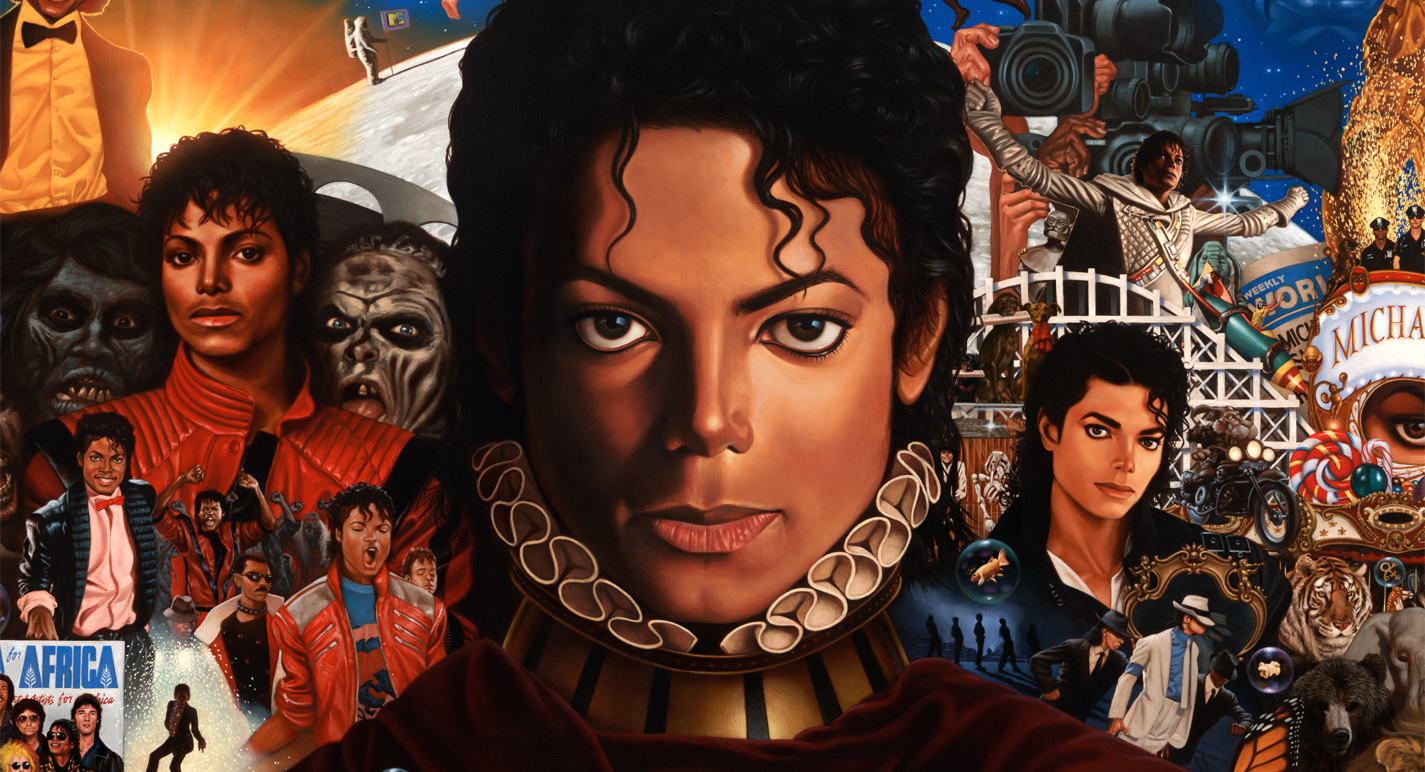
Two ‘get out of jail free’ cards, used by lawyers for Sony to avoid facing the music in a consumer fraud lawsuit, were ripped to shreds by the California Supreme Court on Thursday last week.
As part of their ruling, the court determined that the description on a posthumous Michael Jackson album cover was indeed commercial speech — not free speech, as lawyers for Sony and Jackson’s estate had argued — and that consumers have a case if false or misleading statements were made in the description.
The unanimous ruling sets an important precedent for the protection of California consumers in cases of alleged fraud moving forward.
This case
The controversy centers around an album titled Michael, released 18 months after Michael Jackson’s death by his estate and Sony Music Entertainment.
Prior to the album’s December 2010 release, members of Jackson’s family claimed that three songs on Michael — “Breaking News,” “Keep Your Head Up” and “Monster” — were fakes, with vocals sung by a Jackson impersonator.
But Sony and Jackson’s estate insisted the songs, which they acquired from the pop star’s friend Eddie Cascio and his collaborative partner James Porte, were the real deal.
The songs are known as the ‘Cascio tracks’.
In response to the controversy, Estate attorney Howard Weitzman said he’d conducted an “exhaustive investigation” during which a host of Jackson’s former producers had listened to the Cascio tracks and confirmed that the vocals were “definitely Michael”.
But several of those producers dispute Weitzman’s version of events. You’ll hear their stories in an upcoming podcast series called Faking Michael.
Nevertheless, based on the purported findings of Weitzman’s investigation, Sony asserted their “complete confidence” in the authenticity of the Cascio tracks.
With the authenticity a matter of conjecture, fan Vera Serova relied on Sony and the Estate’s assurances — that the tracks on Michael were indeed sung by Jackson — when she decided to buy the album.
Further convincing Serova to hand over her money was the product description printed on the reverse side of the album cover. It stipulated that the vocals were “performed by Michael Jackson”.
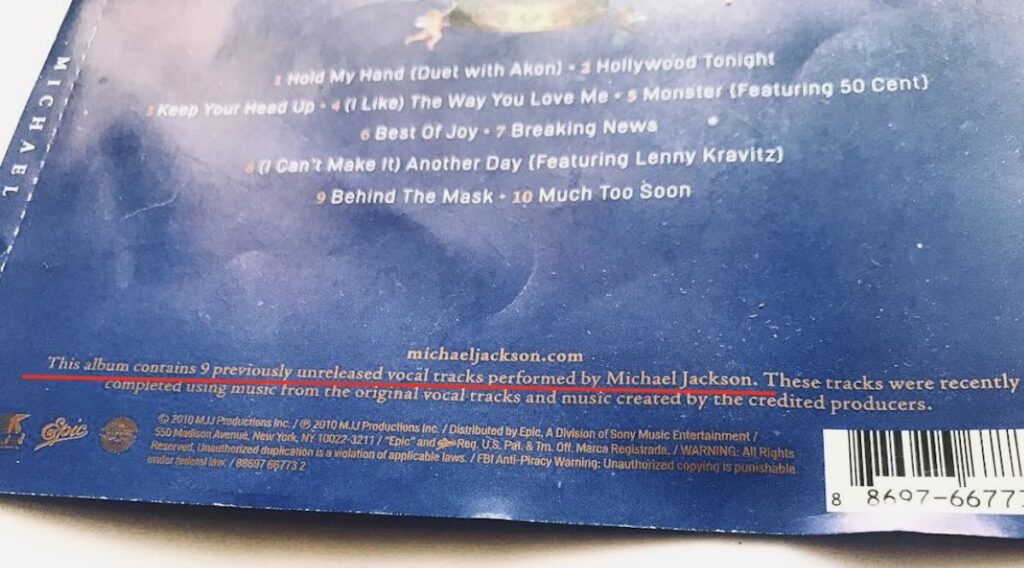
But as evidence contradicting the official story emerged, Serova began to believe she’d been duped.
And so she hired a world-renowned forensic audiologist, who conducted a groundbreaking scientific examination of the vocals on the Cascio tracks. His opinion: the vocals weren’t Michael’s.
That forensic examination was the catalyst for what became an eight-year David versus Goliath legal battle, culminating in Thursday’s Supreme Court ruling.
Corporations can’t sell fake art as the real deal
“Relief has long been available in California to unwitting purchasers of imitation art who relied on false representations about authenticity” said the court in their 45-page opinion.
“If Sony’s assertion that Jackson contributed lead vocals affects consumers’ experience of Michael, this illustrates how misrepresentations about an artist’s contributions can harm consumers in ways that matter to them.”
Executive director of the Berkeley Center for Consumer Law & Economic Justice, Ted Mermin, who supported Serova in her battle with Sony, said:
“If we are buying an album that is marketed as being the songs of Michael Jackson, it had better have the songs of Michael Jackson.”
As well as setting an important legal precedent protecting California consumers, the court’s ruling inadvertently protects artists.
Based on the ruling, there is no plausible excuse for falsely attributing fake works to famous artists. This puts songs on par with paintings and sculptures when it comes to outlawing art forgery.
The ruling is a huge win for creatives, whose reputation — and therefore livelihood and legacy — could be at stake if corporations were free to commercially exploit pastiches under their name.
“Misleading attributions on a record jacket might not only confuse consumers […] but also harm a performer’s reputation,” the court’s ruling states.
But what happens if a corporation sells a forgery without knowing it’s a forgery? This was also covered in the Supreme Court’s ruling.
Sony’s ‘lack of knowledge’ defense
Sony’s purported ‘lack of knowledge’ was raised by the corporation itself in a 2016 petition to be removed from Serova’s lawsuit.
At the time, lawyers for Sony and the Estate volunteered to argue their case based on the notion that the Cascio tracks were fakes, but that they ‘didn’t know’ at the time they released them back in 2010.
It should be made clear that this wasn’t an ‘admission’ that the Cascio tracks are indeed fake. Rather, it was their way of arguing that ‘even if’ the tracks are fake, they’ve done nothing wrong by selling them to fans as authentic Jackson material.
In a December 2016 trial court hearing, attorney Zia Modabber argued that to be liable for misleading consumers, Sony and the Estate had to know the songs were fake, adding that Cascio and Porte had “failed to disclose to Sony or the Estate that Michael Jackson did not provide the lead vocals.”
But the judge overseeing that hearing didn’t take kindly to Sony’s position, saying:
“I think what [Modabber] is saying here is. ‘We were duped… We didn’t know [Cascio and Porte] were recording stuff in a basement that wasn’t recorded by Michael. [Cascio and Porte] told us it was Michael. We believed it was Michael.’”
The judge accused Sony of throwing Cascio and Porte under the bus before ruling in Serova’s favour, ordering Sony to face the music.
But Sony appealed, and in 2018 the appeals court took Sony’s side, dismissing the corporation from the lawsuit.
Serova then challenged the decision to dismiss Sony, petitioning the California Supreme Court to intervene, which they did.
That, in a nutshell, is how we got to Thursday’s ruling — arguments for which were heard by the court on May 24, 2022.
During that May 24 hearing, Modabber again argued that Sony couldn’t be held accountable because they didn’t know the vocals were bogus when they released them in 2010.
But on Thursday, the court rejected Sony’s lack of knowledge defense once and for all, stating that if ignoring evidence was all a corporation had to do to get away with fraud, false advertising laws would be redundant.
“If ignorance around a product’s authenticity were a legitimate defense against false advertising claims, sellers would be incentivized to know as little as possible about their own products,” said the court in their ruling.
“Sellers making claims about their offerings surely do not avoid false advertising regulation […] by scrupulously declining to verify those claims or to acquire knowledge.”

Jeremy Bollinger, one of the attorneys representing Serova, told the LA Times that the court’s ruling was not only a victory for his client, but for all music and art consumers.
“The decision confirmed that it doesn’t matter whether the seller has personal knowledge of the veracity of its statements about its products,” Bollinger said. “If you’re going to sell something, you’re responsible for those representations.”
If they didn’t know in 2010, they knew by 2018
As we discussed earlier: back in 2010, before the Michael album was released, questions were raised regarding the authenticity of the Cascio tracks.
At that time, several people told Estate attorney Howard Weitzman that they did not believe the vocalist was Michael. They alleged it was another singer, named Jason Malachi.
In response, Estate attorney Howard Weitzman claimed that he spoke to Malachi and confirmed that he wasn’t involved.
But when fans heard the Cascio tracks, many identified Malachi’s voice — not Jackson’s — on the tracks.
Further validating the reaction of fans was Malachi’s longtime producer, Tony Kurtis. In a barrage of comments posted via YouTube, Kurtis stated that he knew “without a doubt” that Malachi was the vocalist.
Even the aforementioned audiologist noted in his forensic report that the dialect and vibrato of the Cascio vocalist were consistent with Malachi, but not with Jackson.
Then, in early 2018, Malachi hired a lawyer.
That lawyer then contacted Vera Serova’s legal team to discuss Malachi’s involvement with the Cascio tracks.
Serova and her lawyers claim that Malachi’s lawyer said that his client wanted to help resolve Serova’s litigation with Sony — and to get paid for his involvement.
Malachi's lawyer Alan Tilles had contacted my lawyer before he spoke to the Estate. Malachi wanted to help us settle the Cascio songs case and get compensated for the tracks in the process. The Estate didn't like that idea though. Hence… we are in the Supreme Court.
— morinen (@MorinenMJ) June 24, 2019
A meeting between Malachi’s lawyer, Serova’s lawyers and lawyers for Sony and the Estate was arranged.
But according to Serova’s lawyers, the day before the meeting was set to take place, Sony and the Estate cancelled it, and communications with Malachi’s lawyer came to an abrupt end.
For the four years that followed Malachi’s attempted intervention, Sony and the Estate continued to argue their ‘lack of knowledge’ defense, while also continuing to commercially exploit the Cascio tracks as authentic Jackson recordings.
Calls and emails to Malachi and his lawyer — offering them the right of reply — were not returned.
Why don’t Sony and the Estate sue Cascio and Porte for fraud?
In their 45-page ruling, the California Supreme Court supposed that if the Cascio tracks are indeed fake, Sony and the Estate would want to file a fraud action against Cascio and Porte for duping them, stating:
“Presumably, Sony would seek to invoke any warranties, or assert fraud or other claims, against Cascio and his associates if it believed they peddled fake recordings.”
But in this case, it’s the exact opposite.
In fact, Sony and the Estate have stood firmly behind Cascio and Porte since 2010, regardless of the overwhelming evidence and public outcry against them — something that no one, including Jackson’s family, fans and former collaborators can understand.
Songs removed, case closed
In a somewhat anticlimactic end to their eight-year legal battle, just days before the Supreme Court issued its ruling, Sony and the Estate reached a settlement agreement with Serova.
As part of the settlement, Sony and the Estate were forced to remove the Cascio tracks from digital retailers and streaming platforms around the world.
Based on Serova’s statements over the years, it was clear that no settlement could have been reached without this demand being met.
It should be noted that, according to Serova, she did not receive any money as part of her settlement.
As she has maintained from the beginning of her legal action, Serova’s main objective in filing this lawsuit was justice for Michael Jackson, his art and his fans.
And while Sony hasn’t offered refunds — or an apology — to fans who feel they’ve been duped, the removal of the Cascio tracks from digital platforms worldwide has gone a long way to restoring the integrity of Jackson’s discography.
But despite the Supreme Court’s ruling — that the wording on a CD cover is subject to consumer protection laws — it appears Sony and the Estate have opted against recalling CD copies of Michael from music stores or other retailers around the world.
This is surprising.
The case with Serova is settled only with Serova, meaning anyone else who purchased the album within the statute of limitations — or anyone who might buy the album in the future — would be able to sue Sony and the Estate just like Serova did.
The only difference is that a potential future plaintiff wouldn’t have to argue that the wording on the album cover was commercial speech, or contend with a ‘lack of knowledge’ defense from the corporations.
Now that the case is settled, will the truth regarding the Cascio tracks and the Michael album ever be told?
After selling the Cascio tracks as authentic Jackson recordings for almost 12 years — since December 2010 — Sony and the Estate’s settlement with Serova seems to have absolved Cascio and Porte of liability. At no point were the alleged forgers required to testify under oath, or prove the authenticity of their songs.
And while Sony and the Estate have stated that the recent removal of the Cascio tracks from digital platforms is the “simplest and best way to move beyond the conversation associated with these tracks once and for all,” many of Jackson’s most dedicated fans continue to demand answers.
My forthcoming true crime podcast series Faking Michael will explore those answers, taking listeners behind the scenes to uncover the music industry scandal they were never meant to hear about.
Subscribe via Apple Podcasts, Spotify or wherever you listen to podcasts to be notified when episodes become available.
Damien Shields is the author of the book Michael Jackson: Songs & Stories From The Vault examining the King of Pop’s creative process, and the producer of the podcast The Genesis of Thriller which takes you inside the recording studio as Jackson and his team create the biggest selling album in music history.

Cascio Tracks
Alleged Forgeries Removed From Michael Jackson’s Online Catalog After 12 Years of Protests and a Fraud Lawsuit
Published
2 years agoon
July 7, 2022
Three songs alleged to have been falsely attributed to Michael Jackson were abandoned by the pop star’s estate and record company this week after 12 years of fan protests and a consumer fraud lawsuit.
The alleged forgeries – known as the ‘Cascio tracks’ – come from a collection of 12 songs which producers Eddie Cascio and James Porte claim Jackson secretly recorded in Cascio’s basement in the fall of 2007.
The 12 Cascio tracks were sold to Jackson’s estate a year after the pop star’s death, and three of them – “Breaking News,” “Keep Your Head Up” and “Monster” – were officially released by Sony Music on the Michael album in December 2010.
But Jackson’s fans insist the songs are fakes, with vocals sung by an impostor, and they’ve been demanding the tracks be removed from Jackson’s catalog for the past 12 years.
This week, they got their wish, with the controversial songs being removed from streaming platforms around the world. Jackson’s estate also appear to have discontinued the original 10-track CD version of the Michael album, replacing it with a 7-track edition which can now be ordered from their official website.
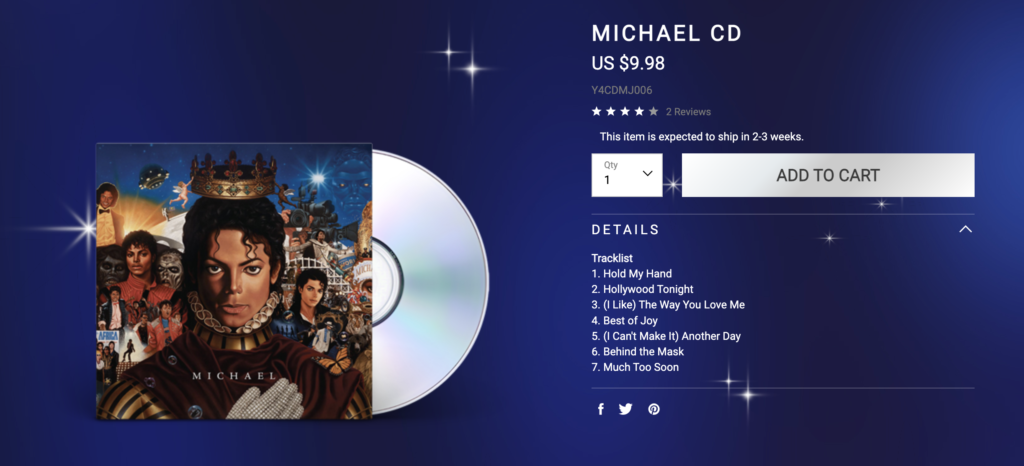
But according to a joint statement issued by Jackson’s estate and Sony – who are currently co-defendants in a class action lawsuit which alleges that the Cascio tracks are fakes – their decision to abandon the tracks had nothing to do with their disputed authenticity:
“The Estate of Michael Jackson and Sony Music decided to remove the tracks ‘Breaking News,’ ‘Monster’ and ‘Keep Your Head Up,’ from the 2010 ‘Michael’ album as the simplest and best way to move beyond the conversation associated with these tracks once and for all,” reads the statement, adding that “nothing should be read into this action concerning the authenticity of the tracks – it is just time to move beyond the distraction surrounding them.”
But many fans aren’t accepting Sony and the Estate’s position, because the “conversation associated with these tracks” is founded entirely on their disputed authenticity. According to some fans, removing the songs while defending their authenticity is not way to move “beyond the distraction surrounding them.”
We want an apology. We are not moving on. You released these songs OVER AND ABOVE the public protestations of Michael Jackson's family, friends and fans… you don't get to "move on" without taking accountability. https://t.co/S1HERXv8Wn
— Samar @TheMJAP (@TheMJAP) July 6, 2022
Typical condescending nonsense from the Estate, putting the blame on fans when they had ample opportunity to investigate the authenticity of the tracks prior to release which would have avoided this "distraction" altogether. https://t.co/PwZweJHDEv
— Ben Nagle (@bennagle9) July 6, 2022
All this proves to me is they absolutely know about their deception and are doubling down on it.
— Morganna Bramah❤️🔥 (@Cyborganna) July 6, 2022
Vera Serova's lawsuit against them in this matter was clearly developing in a direction they hadn't anticipated and want it all to be over.
These crooks have GOT to go! https://t.co/HsJ4pNmBlc
They cannot admit the songs are fake, because the court case is still ongoing. But actions speak louder than words.
— Casey Rain (aka S-Endz) (@CaseyRain) July 5, 2022
Ask yourself this – What is the chance that a released, authentic Michael Jackson song would be removed from streaming?
Answer? 0% https://t.co/jO7MFJkBXa
And despite the fact that the “conversation associated with these tracks” has persisted relentlessly for 12 years, Sony and the Estate continued to sell the tracks to unwitting consumers throughout that entire period, while reaping millions of dollars from what many believe are brazen forgeries.
Until now.
The Jackson family tried to warn them
Prior to the release of the Michael album in 2010, several members of the Jackson family tried to reason with the Estate, informing them that the vocals on the Cascio tracks were not Michael’s while urging them not to move forward with their release.
Michael’s siblings Randy, Jermaine and Latoya all claimed that the vocals on the tracks did not belong to their brother.
They were ignored.
Michael’s mother – Estate beneficiary and family matriarch, Katherine Jackson – raised her voice against the tracks.
She was also ignored.
Michael’s oldest brother, Jackie Jackson, also came out against the Cascio tracks, revealing that both he and Estate co-executor John McClain had insisted for many weeks that the alleged forgeries should be removed from the album.
Their concerns were “not taken seriously.”
My friend John McClain (co-executor) and I have insisted for many weeks to have certain tracks removed from Michael's new album.
— Jackie Jackson (@JackieJackson5) November 9, 2010
Unfortunately, our concerns were not taken seriously
— Jackie Jackson (@JackieJackson5) November 9, 2010
Michael’s nephews Taryll, TJ and Taj from the group 3T also spoke out, taking to social media to dispute the authenticity of the songs and raise awareness regarding some of what went on behind the scenes.
Once again, their concerns were ignored.
In a statement issued on the 5th of November 2010, Sony asserted their “complete confidence” in the authenticity of the tracks. It was even reported that two independent forensic musicologists had verified that the vocals were Jackson’s.
Fans reject Breaking News
On the 8th of November 2010, five weeks before the Michael album was officially released, Sony unveiled one of the Cascio tracks – “Breaking News” – in a world premiere on Michael Jackson’s website.
When fans heard the track, they revolted.
Many rejected the notion that Michael was the vocalist while pointing the finger at another singer named Jason Malachi.
But as they’d done with the Jackson family, Sony and the Estate ignored the opinions of fans.
Instead of reconsidering their plan to release the Cascio tracks, the Estate opted to gaslight fans in a statement, claiming that they’d investigated the authenticity of the vocals and believed “without reservation” that they were indeed Michael’s.
The following month the Estate and Sony took things a step further, stipulating in no uncertain terms that the vocals were “performed by Michael Jackson” on the back cover of the Michael album – released in the U.S. on the 14th of December 2010.
They also arranged for Eddie Cascio to defend the authenticity of his songs on the Oprah Winfrey show. The Jackson family, however, were not invited to tell their side of the story.
The lawsuit
In June 2014, Michael Jackson fan Vera Serova filed a class action consumer fraud lawsuit against Jackson’s estate, Sony, Eddie Cascio, James Porte and their production company.
In her lawsuit, Serova alleges that Cascio and Porte are the masterminds of an “elaborate artistic fraud” in which they forged a collection of fake songs, and that Sony and the Estate misled her and others by attributing those forgeries to Michael Jackson on the Michael album.
As part of her lawsuit, Serova demanded the removal of the Cascio tracks from Jackson’s discography – a demand which now seems to have been met.
But despite the Cascio tracks having now been removed, Serova’s lawsuit remains ongoing.
It has been reported by the media this past week that Sony and the Estate won this case in 2018.
This is simply not true.
In fact, Serova actually won the initial ruling on Sony and the Estate’s involvement in this case back in 2016. At that time, Sony and the Estate had tried to shirk responsibility, but were ordered to face the music by the Los Angeles Superior Court.
But Sony and the Estate felt they’d done nothing wrong and appealed that ruling – an appeal on which they prevailed in 2018.
In turn, Serova fought back, petitioning the California Supreme Court for review.
And based on the Supreme Court’s view that the appeal court’s ruling was legally “problematic,” Serova won her bid for review.
Oral arguments in that review were heard by the state Supreme Court the 24th of May 2022.
A ruling has not yet been made, but is expected soon.
Sony and the Estate will need to prevail to be officially removed from litigation once and for all. If they don’t prevail, they’ll remain defendants in this case.
As of today (July 7), neither party has definitively prevailed and there is no judgment.
As mentioned, the original producers of the Cascio tracks – Eddie Cascio and James Porte – have also been sued as part of Serova’s lawsuit. They are sued with fraud, and that aspect of the lawsuit also remains ongoing.
You can hear my opinion on the removal of the Cascio tracks and much more below, in a roundtable discussion hosted by Michael Jackson podcast The MJCast:
I am also working on a podcast series called Faking Michael detailing the ins and outs of the Cascio tracks and the Michael album. Subscribe via podcast apps to be alert when episodes are released in the future.
Damien Shields is the author of the book Michael Jackson: Songs & Stories From The Vault examining the King of Pop’s creative process, and the producer of the podcast The Genesis of Thriller which takes you inside the recording studio as Jackson and his team create the biggest selling album in music history.

Subscribe to Podcast
Articles


Producer Teddy Riley Comes Clean Regarding Fake Songs From Posthumous Michael Jackson Album
Legendary producer Teddy Riley has spoken out against the controversial Michael Jackson album he worked on after the pop star’s...


Huge Win for Michael Jackson Fan as Supreme Court Rejects Sony’s Free Speech Defense in “Fake” Songs Lawsuit
Two ‘get out of jail free’ cards, used by lawyers for Sony to avoid facing the music in a consumer...


Alleged Forgeries Removed From Michael Jackson’s Online Catalog After 12 Years of Protests and a Fraud Lawsuit
Three songs alleged to have been falsely attributed to Michael Jackson were abandoned by the pop star’s estate and record...

Supreme Court Judge Grills Sony Lawyer Over ‘Contradictory’ Arguments in Alleged Michael Jackson Fraud
A lawyer defending Sony Music and the Estate of Michael Jackson in a consumer fraud lawsuit has today argued that...

Court Date Set in Supreme Court Battle Over Legal Right to Sell Alleged Michael Jackson Forgeries
Sony Music and the Estate of Michael Jackson will again fight for their right to sell alleged forgeries as authentic...


Invincible, ‘Xscape’ and Michael Jackson’s Quest for Greatness
Below is a chapter from my book Michael Jackson: Songs & Stories From The Vault, revised for this article. The full book...
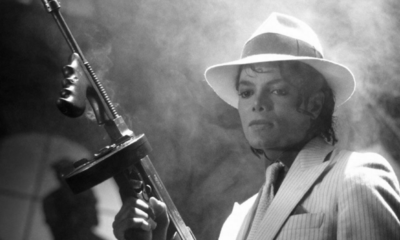

‘Blue Gangsta’ and Michael Jackson’s Fascination with America’s 20th Century Underbelly
Below is a chapter from my book Michael Jackson: Songs & Stories From The Vault, revised for this article. The full book...


Michael Jackson Meets America in Invincible Album Outtake ‘A Place With No Name’
Below is a chapter from my book Michael Jackson: Songs & Stories From The Vault, revised for this article. The full book...

First Amendment Coalition to Support Sony and the Jackson Estate in Fake Songs Lawsuit
There has been yet another twist in the class action lawsuit filed by Californian consumer Vera Serova against Sony Music...

Californian Government Joins Fraud Lawsuit Against Sony Music and Jackson Estate
The California state government has officially joined a class action lawsuit against Michael Jackson’s estate and record company. In a...


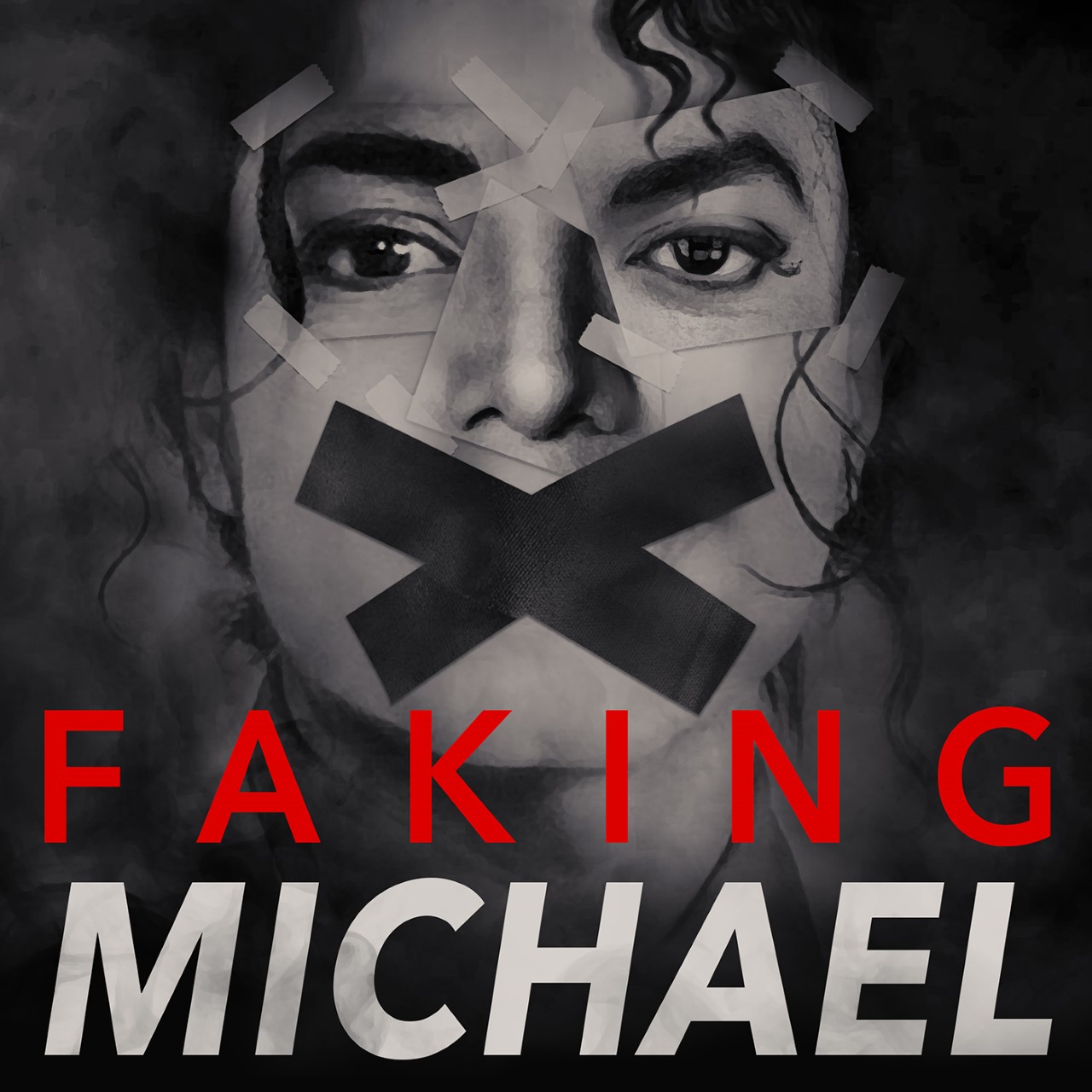

Debbie Longshaw
December 15, 2017 at 7:19 pm
It is one of the greatest frustrations as a fan, is not having a voice or being listened to. Vera has finally gone where no fan has gone before. Thanks to her tenacity, at last The Estate, & others are having no choice but to stand up & take notice. Without a doubt there are those who are seeking to trash Michael’s music legacy by producing so much crap in spite of the fact that we all know there is quality stuff out there!
So glad to here the book is still on the go. ❤️
Suzy
December 16, 2017 at 1:25 am
I was wondering what was going on with this case. It should be much bigger news. If Milli Vanilli was one of the biggest scandals of recording history how much bigger this should be?
Albion
December 17, 2017 at 9:03 am
Another fantastic, detailed and well written article from you. So glad you are back.
SHIRLEY ALVES
December 17, 2017 at 9:56 pm
Amen Damien! Let’s hope the utcome of this lawsuit finally brings honesty, justice and respect to Mj and his true artistry.
Thanks again for your continuing efforts to enlighten and educate te fans and the public!
SHIRLEY ALVES
December 17, 2017 at 9:57 pm
(sorry for the typos!)
Owais
December 21, 2017 at 8:16 pm
Thanks for the article Damien. Where have you been for sooo long?
Lucas
January 19, 2018 at 6:19 am
Well it’s been quite obvious right from the start that MJ never sung a single note on those three songs. It’s easy to tell if you’ve listened to the man in every one of his records. I’m glad that a single person, a MJ fan, could insist so much that the Estate almost had no choice but to admit that those three songs aren’t MJ’s at all. I agree a lot about removing them from MJ’s official discography as soon as possible. They have nothing to do there.
Mark
March 9, 2018 at 4:01 pm
Good article & welcome back to the land of the living!
Adriana
August 22, 2018 at 12:17 pm
Gracias Damien por todo tu trabajo e información que publicas, siempre tan fundamentada. Compré tu libro Xscape Origins en español y me pareció alucinante. Con respecto a las canciones falsificadas, me llama mucho la atención que el Estate nos crea tan tontos como para no darnos cuenta de que no es la voz de Michael, quizas puedan engañar a los demás, pero a nosotros sus fans jamas. Solo espero que se haga justicia .
DJ Blur
March 16, 2019 at 10:28 pm
You should make a 1 paragraph summary of all this stuff so people knew to this site don’t have to read so much to get the jist of the events